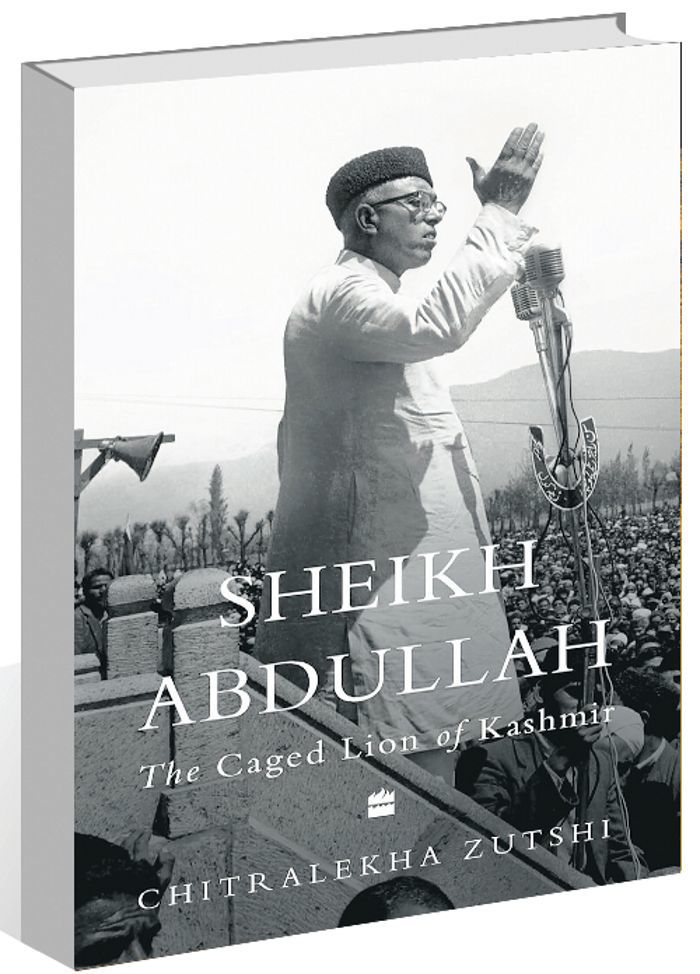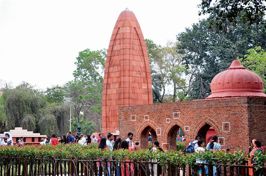Sheikh Abdullah: The caged lion of Kashmir by Chitralekha Zutshi. HarperCollins. Pages 334. Rs 799
Book Title: Sheikh Abdullah: The caged lion of Kashmir
Author: Chitralekha Zutshi
M Rajivlochan
This interesting book documents the efforts by Sheikh Abdullah to use Muslim separatism for crafting a kingdom for himself and his failure to do so in the face of pushback from Indian leaders like Jawaharlal Nehru and Indira Gandhi. The story, as with all good stories, is complex. Shorn of presumptions about self-determination, true federalism, appropriate democratic norms, constitutional growth, etc, in its bare form, the book tells us of the emergence of Muslim separatism in India, the pushback by nationalist and secular forces, Abdullah succumbing to the siren song of power and, the consequent force used against him by Nehru.
Muslim separatism was inscribed into the body politic of India by the liberal government that came to power in the United Kingdom by creating a separate electorate for Muslims. Under this scheme, which was notified by the India Act of 1909, about 40 per cent of the elected seats were for Muslims who would be elected only by Muslim voters. In addition, two Indians were nominated to the Secretary of State’s Council at Whitehall. One, representing Muslims, was Nawab Sayyid Husain Bilgrami, who was in the civil service of the Nizam and the other, representing Hindus, was Krishna G Gupta of the Indian Civil Service.
It was only in 1931, in the aftermath of bloody communal riots across India, that the Indian National Congress officially used the phrase ‘Divide and Rule’ to describe such policies imposed upon India by the British. That was also the time when 25-year-old Sheikh Muhammad Abdullah, the youngest son of a poor widowed mother, rebelled against the oppressive elitist misbehaviour of the government officials in Kashmir. His exertions resonated with the common people of Kashmir and made him quite a favourite of Pandit Jawaharlal Nehru, who was emerging as a mass leader in India.
Nehru stood by Abdullah as he rallied the people. The most important thing was that Hindus as well as Muslims stood behind Abdullah. When the Pakistani invasion of Kashmir started within weeks of Independence, Abdullah and his supporters picked up arms to resist it. That made him quite a darling of Nehru. After the invaders had been pushed back from Srinagar and almost two-thirds of Kashmir had been taken over by Pakistan, Abdullah met the prime minister of Pakistan in Karachi to convince them to agree to a vote in Kashmir to underscore the tremendous support from the people of Kashmir for joining India. The Maharaja of Kashmir had already signed the accession document. However, Pakistan refused to concede. In the months that followed, with Nehru escalating the matter of the Pakistani occupation of Kashmir to the UNO, India seemed to have lost the will to include Kashmir within the fold of the nation.
Abdullah saw in this an opportunity to assert his will and craft out a separate country to lead. Ideas of federalism and separatist nationalism came in handy to justify such action. Moreover, this seemed to be a good way to short-circuit challengers from within his party, like Bakshi Ghulam Muhammad and Ghulam Mohammed Sadiq, both of whom unabashedly preferred to be with India. Abdullah’s radio broadcasts increasingly told people to be wary of “the corrupt sycophants” within the NC (National Conference).
Nehru balked at Abdullah’s interpretation of the idea of federalism, self-determination and, worse, his insistence that Muslims felt threatened within India (Not so long ago, this line of reasoning had resulted in the creation of a separate nation out of India for Muslims. Moreover, even President Lincoln in USA had preferred to resort to force and had refused to concede federal autonomy to the extent of allowing parts of the nation to secede). To make matters worse, Zutshi tells us, the international press seemed to suggest that Nehru had agreed to the partition of the state of Jammu and Kashmir between India and Pakistan, with the Valley being granted independence. A perturbed Nehru informed Abdullah that the personal friendship between them would not come in the way of his taking the proper path in public policy. His government was dismissed and Abdullah jailed.
In Zutshi’s book, Abdullah’s own voice gets drowned. To hear that, a reader curious about Abdullah’s own efforts to ride the waves of history and his failure to turn the tide, his almost 1,000-page autobiography — ‘Aatish-e-Chinar’ — still remains the best source of information.














